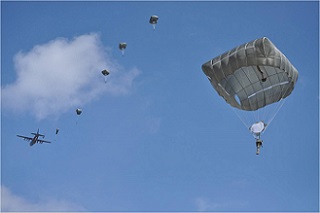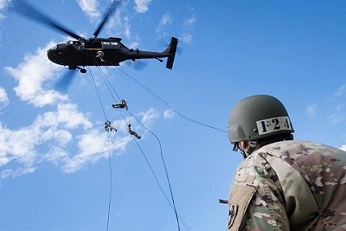-
About
- Friday, May 17, 6 p.m.
- Saturday, May 18, 11 a.m.
Commencement
Celebrating the Class of 2024
About
-
Academics
- Friday, May 17, 6 p.m.
- Saturday, May 18, 11 a.m.
Commencement
Celebrating the Class of 2024
Academics
-
Admission & Financial Aid
- Friday, May 17, 6 p.m.
- Saturday, May 18, 11 a.m.
Commencement
Celebrating the Class of 2024
Admission & Financial Aid
-
Student Life
- Friday, May 17, 6 p.m.
- Saturday, May 18, 11 a.m.
Commencement
Celebrating the Class of 2024
Student Life
- Athletics
- Test
Everyone looking into stage
Student Involvement
Special Training
Throughout their experience in ROTC, cadets have the ability to experience numerous training opportunities in both ROTC itself, or the bigger Army. Some examples of training opportunities are highlighted below:
Basic Camp
Basic camp is a leadership training experience held during the summer after either freshman or sophomore year. Basic Camp is available for cadets who have never had any prior military experience. Held in Fort Knox Kentucky, Basic Camp allows cadets to get up to speed with peers who have been in the program longer (if they joined during the semester), giving them more opportunities to participate and lead throughout campus-based training. During Basic Camp, cadets will learn the essentials of military bearing and thinking, leadership, small unit tactics, and fieldcraft skills to become competant during the academic year.
Advanced Camp
(Formerly known as the Leader Development Assessment Course) Advanced Camp is held the summer after junior year in Fort Knox, Kentucky. Advanced Camp is a final assessment of the leadership abilities of MSIII level cadets, testing what they have learned throughout their experience in ROTC within both garrison and field environments. Every MSIII cadet in the nation at some point comes to Fort Knox for evaluation. During the several weeks of training, cadets spend time leading their peers through missions, are evaluated on skills such as marksmanship and critical thinking, and receive an overall grade outcome that helps determine officer branch selections after graduation.
Airborne School

Air Assault School

Cadet Troop Leadership Training (CTLT)
CTLT allows MSIII level cadets to shadow a platoon leader in the active army for three weeks, following their unit in both the field and garrison environments, and assisting in duties that a platoon leader is responsible for. This gives cadets perspective on what life will be like for a second lieutenant in the active Army. Cadets are actually placed in charge of soldiers along with the lieutenant that they are following, allowing cadets to sharpen their leadership skills and put them into practice before commissioning.
Cultural Understanding and Learning Program (CULP)
CULP is a study-abroad program offered by ROTC that allows cadets to live in a foreign country with a team of other cadets and cadre, training with foreign militaries and conducting humanitarian missions (usually around a month long). CULP missions can be directed to numerous countries around the world, spanning six continents and different countries with various levels of development. CULP can be done by MSI-MSIII level cadets.
